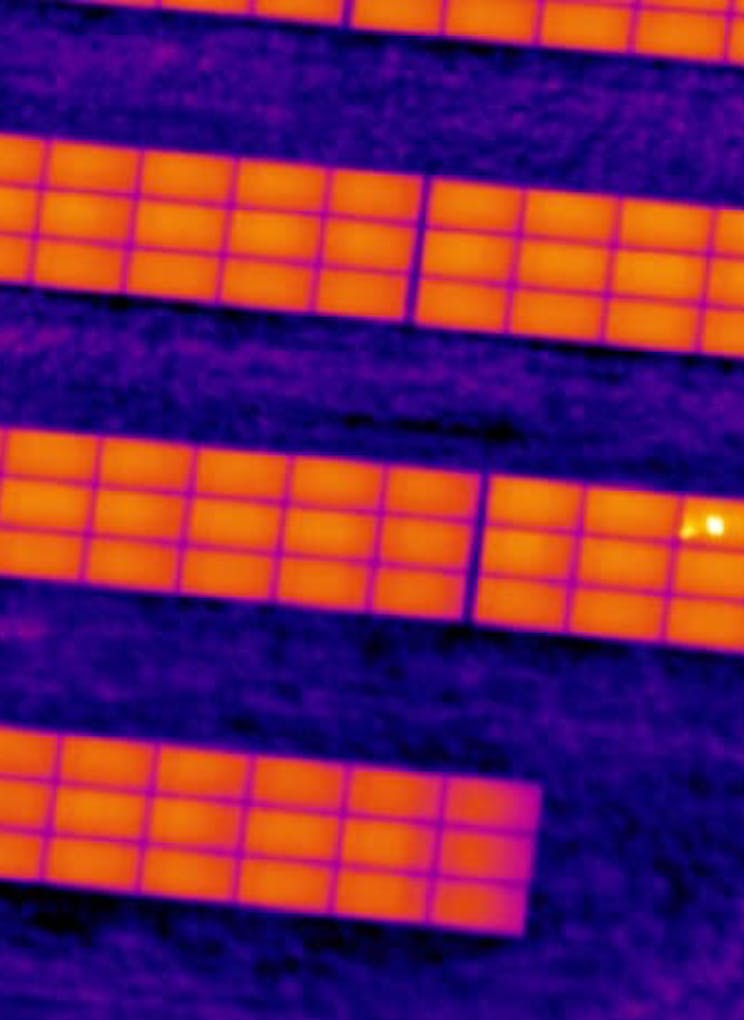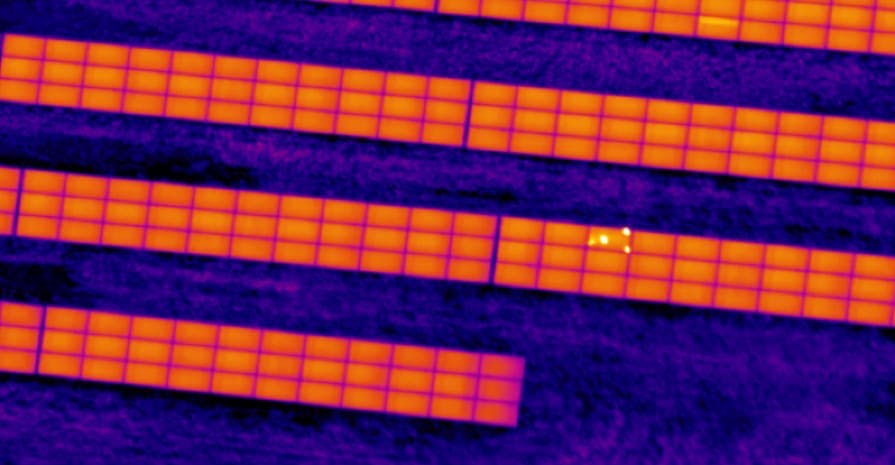R. Dr. Francisco Sá Carneiro
Zona Industrial de Bouro - Letra C
4740-010 Esposende, Portugal

Why isn’t solar panel cleaning a standard practice worldwide?
Solar panel cleaning continues to be a misunderstood topic across the solar industry. While cleaning is already seen as essential in certain areas and utility-scale projects, it’s far from being a universal standard. Why is that? Despite rising evidence that regular cleaning helps maintain energy production and prevent long-term damage, many system owners still believe it’s unnecessary. This resistance is largely due to a few persistent myths—and the fact that the solar industry, in many ways, is still finding its footing. Let’s break down the main reasons why cleaning hasn't become a global standard just yet.
The myths that are holding back the industry
1. Rain is enough
This is, by far, the most common belief. Many solar panel owners think rain will wash away any dirt that accumulates. While rain can help reduce some loose dust, it’s far from a proper cleaning solution. In many cases, rainwater actually leads to a build-up of dirt and grime along the bottom edge of the panel, especially when mixed with environmental pollution or organic soiling. Over time, this kind of accumulation can lead to serious performance issues and even physical damage to the panel surface. Furthermore, the mineral deposits from rainwater, especially in arid or hard water regions, can create a thin film on the panels, reducing their efficiency even further.
2. Panels are self-cleaning
Some manufacturers advertise solar panels with hydrophobic coatings as “self cleaning.” In reality, these coatings can help delay the adhesion of dirt, but they don’t prevent soiling entirely—especially not sticky substances like bird droppings or tree sap. Even panels with the latest technology coatings still need periodic maintenance, particularly in dry or dusty regions. These coatings are more of a preventative measure than a permanent solution. They can slow the accumulation of dirt, but after a while, dirt, grime, and other contaminants will still gather on the panels and require active cleaning to maintain peak performance.
3. It’s not worth it
This one is a bit controversial because whether cleaning is "worth it" depends on the site, local conditions, and system size. For a small rooftop system in a rainy city, the benefit of frequent cleanings might seem minimal. But for larger systems or those in arid areas, neglecting cleaning can result in energy losses of over 20%. And even in less extreme scenarios, the accumulation of dirt over time has long-term consequences that many owners fail to consider. Not only does this result in immediate energy production losses, but it can also lead to the deterioration of the panels themselves. In fact, ignoring cleaning may void warranties or significantly reduce the panels' lifespan, leading to higher replacement or repair costs down the line.
The youth of the industry
Another reason solar cleaning isn’t standard yet is simply because the industry is still young. In the last decade, solar installations have boomed across the world, often spurred by incentives, falling prices, and climate goals. But while installation numbers skyrocketed, maintenance practices haven’t caught up at the same pace. Many of these installations were built with minimal consideration for long-term care. The initial focus was on getting the panels installed and operational, but the conversation about maintenance—including cleaning—came later as systems aged and experienced performance dips. Moreover, maintenance contracts are still evolving in many markets, and cleaning isn’t universally integrated into these agreements. As systems begin to age and show signs of wear, the conversation around preventative care—including regular cleaning—is starting to gain impulse. The industry is learning that, like any investment, solar systems require upkeep to maintain their value over time.
The hidden cost of curtailment
Curtailment—when solar systems are forced to limit their output due to grid constraints or overproduction— is another factor complicating the picture. When operators are already cutting production for other reasons, they may not see the value in cleaning the panels. But this is short-term thinking. Cleaning ensures that the system is performing at its peak when it is called upon to produce. In regions where curtailment is seasonal or temporary, maintaining optimal panel performance can make a significant difference in long-term returns and system health. If panels are left dirty, curtailment combined with reduced energy output from dirty panels can lead to a double hit on energy production. Additionally, the buildup of grime can increase the likelihood of module hotspots and system failure, exacerbating the issue.
It’s not just about production
Here’s the part that often gets overlooked: cleaning isn’t just about regaining lost energy—it’s about protecting the future of your investment.
Long-term soiling can lead to:
- Hotspots, where uneven dirt accumulation causes parts of a panel to overheat, potentially damaging cells permanently. Hotspots can result in permanent performance losses and, in severe cases, total panel failure, which might not be immediately noticeable but can become expensive to repair.
- Degradation of the ARC (Anti-Reflective Coating), which helps panels absorb sunlight more efficiently. Over time, dirt, dust, and pollution buildup can break down the protective layers on the panel, reducing its ability to harness sunlight efficiently and leading to a decrease in overall energy production.
- Corrosion or damage to the panel structure, seals, or backing, especially if pollutants or biological matter remain in contact with the module for too long. The buildup of organic matter (such as algae, bird droppings, or tree sap) can accelerate corrosion on the panel’s frame and joints, causing damage to seals and even creating a pathway for water to infiltrate the panel structure. In short, regular cleaning helps prevent small issues from becoming big ones. It's a low-cost way to extend the life and reliability of your system, ensuring you get the return you expect from your solar investment.
In short, regular cleaning helps prevent small issues from becoming big ones. It's a low-cost way to extend the life and reliability of your system, ensuring you get the return you expect from your solar investment.
Moving toward a smarter standard
The future of solar energy depends not just on how we generate power, but how we care for the systems we install. With the industry maturing and long-term performance data becoming more available, myths are being replaced by best practices— and solar panel cleaning is gradually becoming a key component of standard maintenance practices. This shift in perspective is not only about improving energy yield but also about adopting a more comprehensive approach to system maintenance. As more performance data becomes available, cleaning is increasingly viewed as a routine part of preserving the efficiency and reliability of solar installations.
At Chemitek, we believe that cleaning should be safe, efficient, and tailored to the specific needs of each site. That’s why we continue to develop solutions like Solar Wash Protect, designed to reduce water use, protect panel surfaces, and make cleaning faster and easier.
Have questions about solar panel cleaning, or want to know more about how to protect your system in the long term? Reach out—we’re always happy to talk solar.





